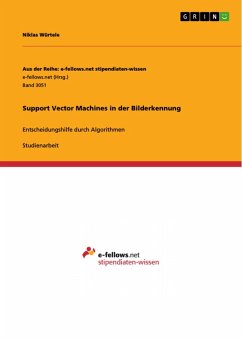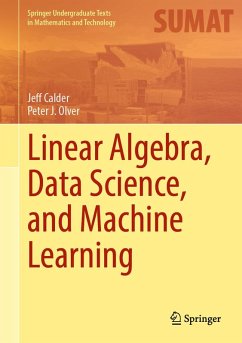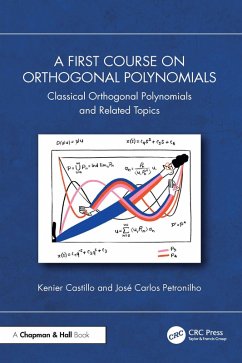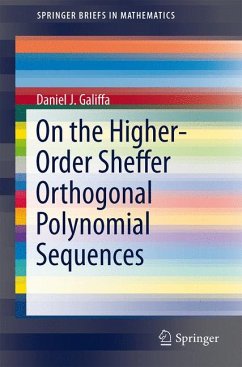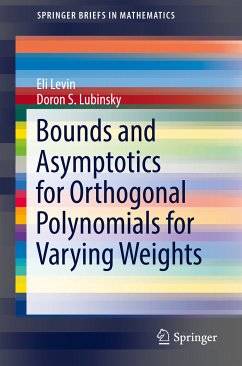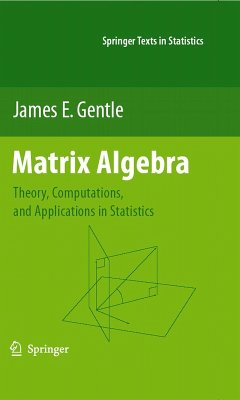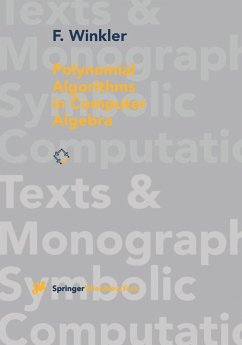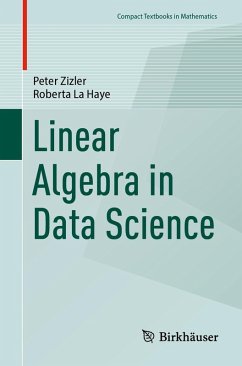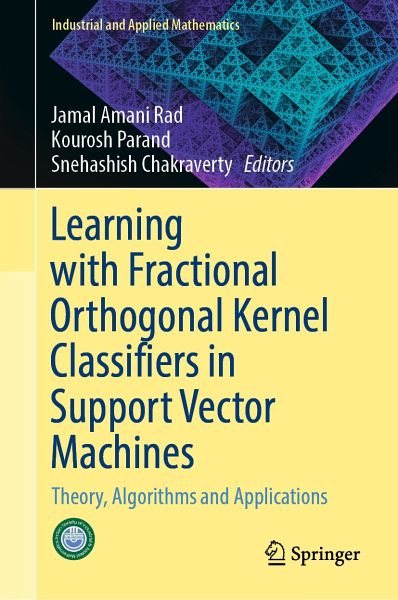
Learning with Fractional Orthogonal Kernel Classifiers in Support Vector Machines (eBook, PDF)
Theory, Algorithms and Applications
Redaktion: Rad, Jamal Amani; Chakraverty, Snehashish; Parand, Kourosh

PAYBACK Punkte
56 °P sammeln!
This book contains select chapters on support vector algorithms from different perspectives, including mathematical background, properties of various kernel functions, and several applications. The main focus of this book is on orthogonal kernel functions, and the properties of the classical kernel functions-Chebyshev, Legendre, Gegenbauer, and Jacobi-are reviewed in some chapters. Moreover, the fractional form of these kernel functions is introduced in the same chapters, and for ease of use for these kernel functions, a tutorial on a Python package named ORSVM is presented. The book also exhi...
This book contains select chapters on support vector algorithms from different perspectives, including mathematical background, properties of various kernel functions, and several applications. The main focus of this book is on orthogonal kernel functions, and the properties of the classical kernel functions-Chebyshev, Legendre, Gegenbauer, and Jacobi-are reviewed in some chapters. Moreover, the fractional form of these kernel functions is introduced in the same chapters, and for ease of use for these kernel functions, a tutorial on a Python package named ORSVM is presented. The book also exhibits a variety of applications for support vector algorithms, and in addition to the classification, these algorithms along with the introduced kernel functions are utilized for solving ordinary, partial, integro, and fractional differential equations.
On the other hand, nowadays, the real-time and big data applications of support vector algorithms are growing. Consequently, the Compute Unified Device Architecture (CUDA) parallelizing the procedure of support vector algorithms based on orthogonal kernel functions is presented. The book sheds light on how to use support vector algorithms based on orthogonal kernel functions in different situations and gives a significant perspective to all machine learning and scientific machine learning researchers all around the world to utilize fractional orthogonal kernel functions in their pattern recognition or scientific computing problems.
On the other hand, nowadays, the real-time and big data applications of support vector algorithms are growing. Consequently, the Compute Unified Device Architecture (CUDA) parallelizing the procedure of support vector algorithms based on orthogonal kernel functions is presented. The book sheds light on how to use support vector algorithms based on orthogonal kernel functions in different situations and gives a significant perspective to all machine learning and scientific machine learning researchers all around the world to utilize fractional orthogonal kernel functions in their pattern recognition or scientific computing problems.
Dieser Download kann aus rechtlichen Gründen nur mit Rechnungsadresse in A, B, BG, CY, CZ, D, DK, EW, E, FIN, F, GR, HR, H, IRL, I, LT, L, LR, M, NL, PL, P, R, S, SLO, SK ausgeliefert werden.



